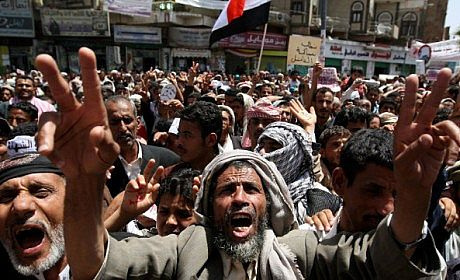Unclear Fate of the Middle East

Two years after the onset of popular uprisings in several Arab countries known as the Arab Spring, it can now be clearly seen that this spring has never come, or it has reached its autumn.
Two years ago, the first spark of this development was ignited by the self-burning of a young Tunisian. People from all walks of life poured into the streets. Sometime after that, the authoritarian ruler of Tunisia fled the country and the people celebrated this victory. Then this event spread to other countries. In Egypt, Yemen, Libya and Bahrain, the same situation was repeated. Again we are now witnessing the self-burning of disappointed and hopeless Tunisian youths. It seems that in Egypt the revolution has started again and it is feared that national unity cannot easily be established. With a Saudi plan, only the head of the country was apparently dismissed In Yemen. Following the downfall of Kaddafi, Libya was torn apart and, in Bahrain, people are still protesting in the streets and are being suppressed.
The most important problem of all of these revolutions was that there was no charismatic leader in any of them. The other problem was that these revolutions were stopped on their path when they were confronted with the army and the security apparatus. This by itself opened the way for the intervention of foreign powers which had secret and expanded relations with the armies and security organizations of these countries.
Israel and the western powers, with the US at the helm, which had lost their important regional allies, made efforts to control the situation. On the verge of these uprisings, regional order had two principal axes. The first was the axis of the regimes which had defined their role within the strategic Middle Eastern framework of the US and the West i.e. Egypt, Tunisia, Saudi Arabia, Jordan, and naturally the Palestinian Authority. On the other side, there was the axis of resistance led by the Islamic Republic of Iran and with the membership of Iraq, Syria, and the Islamic resistance of Lebanon and Palestine. But the West resorted to the strategy of control and containment. With the mediation of personalities from the ruling Justice and Development Party in Turkey and through their influence on the intelligence organizations of the countries dealing with revolutions, especially Egypt, the western countries accepted that power be bestowed upon Muslim Brotherhood groups, who are called moderate Islamists, through an apparent democratic process, provided that they do not take any measures against the security of Israel. At the same time, they were asked to seriously close the gate for the possible influence of Iran and the axis of resistance on these revolutions, which is what the Muslim Brotherhood has, hitherto, done.
This was how the Muslim Brotherhood came to power in Tunisia and Egypt. But their numerous mistakes due to lack of experience on one hand, and ignoring the people, monopolizing power at whatever cost, investing in support from the west, having too pragmatic of a behavior and thus ignoring the ideological and ethical principles on the other hand, caused them to lose their limited popularity within a short period of time.
Meanwhile, the West and Turkey and several Arab countries, particularly Qatar and Saudi Arabia which were deceived by the hasty downfall of Muammar Kaddafi in Libya, decided to export this model to the axis of resistance, especially its middle ring i.e. Syria. In fact, what is happening in Syria is decisive for all regional and international players, thus, neither side is prepared to back down and in the minds of all players, it is only a military solution that will determine the fate.
Their failure in Syria has caused them to regionalize the crisis and export it to neighboring countries particularly Lebanon and Iraq. For this purpose, they have entered thousands of Takfiris into Lebanon and deployed them in the north and Beirut and in Saida in the south. While enjoying the support and money of Saudi Arabia and the Hariri family, these people do not have any other objective but to attack Hezbollah through enflaming ethnic dependence. The Lebanese society is seriously divided as even an agreement on the election laws, which is supposed to take place in June, has become impossible and the country is threatened by a destructive civil war. In Iraq, a similar situation is seen as well and the wave of blind explosions and the massacre of innocent people in the streets under the name of Shiite-Sunni differences have grown.
What is evident is that the sky of the Middle East is covered with dark clouds and it seems possible that during the first months of the New Year, the region will be witness to profound and destructive developments. Nevertheless, all signs indicate that there will be no spring.

